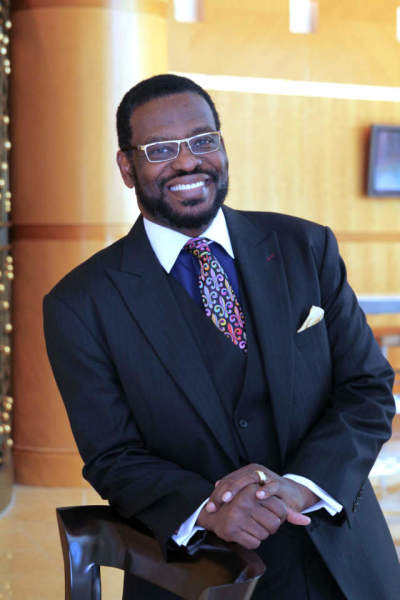How Black Was Jesus?

Can you imagine a television program airing in America that portrayed Muhammad as a foul-mouthed pothead? Given that earlier this year ABC canceled Alice in Arabia—a show about an Arab-American who goes to live with her grandparents in Saudi Arabia—because CAIR (the Council on American-Islamic Relations) complained that the show relied on stereotypes of Muslims, it seems highly unlikely. Yet Black Jesus –the latest reminder that Christianity is the only major religion it is universally permissible to denigrate—began airing August 7 on Adult Swim.
Why did this show make it past the network censors while a similar show about Muhammad never would have? Probably for the same reason P*ss Christ—a 1987 photograph of a crucifix submerged in the "artist's" urine—was exhibited in the Stux Gallery in New York and won an award for visual arts from the Southeastern Center for Contemporary Art, sponsored by the National Endowment for the Arts. And the same reason Madonna could perform her single Live to Tell wearing a crown of thorns while suspended from a giant cross. In America, mocking Christianity has gone from being considered a sign of poor taste to the mark of artistic courage.
Although Megan Kelly was nearly "crucified" for affirming that Jesus was white, this series takes the issue of Jesus' ethnicity to the point of absurdity. Black Jesus began as a series of shorter skits on YouTube, where its antics fit well with the millions of hours of similarly amateurish material. The show has one joke: a black man in Compton dresses in robes suitable for a middle school play and calls himself Jesus. He's a nice enough guy, but he spends his days drinking forties, smoking joints, and dropping the f-bomb. And if you don't think that's just hilarious, then according to Robert Lloyd of the Chicago Tribune, you are an uptight religious fanatic who needs to relax. Lloyd writes:
This Jesus does smoke pot, it's true, but the propriety of this is as much of an argument about pot as it is about Jesus, who biblically turned water into wine; the Good Book says nothing about marijuana. Although for some Christ is a figure of inflexible rectitude, with perfect hair and feet that never need washing, he was no respecter of authority, money, class or the law.
Lloyd deliberately misses the point. The title character in Black Jesus is not advocating for the legalization of marijuana because he believes the costs of enforcement outweigh the benefits to society. He is an unemployed loser who takes more than his fair share of hits off the communal blunt. To suggest that anyone who doesn't embrace this portrayal of Jesus sees Christ as "a figure of inflexible rectitude" is a false dichotomy to say the least.
Favorable reviews dismiss these antics as harmless stoner humor, akin to the "Harold and Kumar" movies, which trace the adventures of potheads in search of junk food. Yet no one interpreted Harold and Kumar as representative of the Indian and Korean communities, whereas by its very title, Black Jesus goes out of its way to insult both blacks and Christians.
Public opinion polls have consistently demonstrated that African Americans have, on average, a much greater reverence for Jesus, the Bible and the basic tenants of the Christian faith than the American population as a whole. George Barna's research has demonstrated repeatedly, blacks are much more likely than other ethnic groups to attend church services, participate in small groups and Sunday school classes, pray, and read the Bible. (Ironically, the Washington Post praised Black Jesus for giving "visibility to a group rarely in the spotlight: minority skeptics.")
There was a time when the entertainment industry appeared to respect the central role of Christianity in the black community. It's all too obvious we live in a different day. By sloppily separating Jesus's love from His holiness, Black Jesus would have us believe that God's love is no different from the warm, fuzzy feeling found at the bottom of a forty or the end of a blunt.
It is too early to make a judgment about the size or demographics of the Black Jesus's audience, but I will be very surprised if many blacks tune in. Although the show has excellent comedic writing and some stand out black actors, it fails to be entertaining to those of us who grew up in real ghettos. Folks who find Black Jesus harmless fun cannot think much of Jesus, which is hardly surprising. But neither can they think much of black people.





























